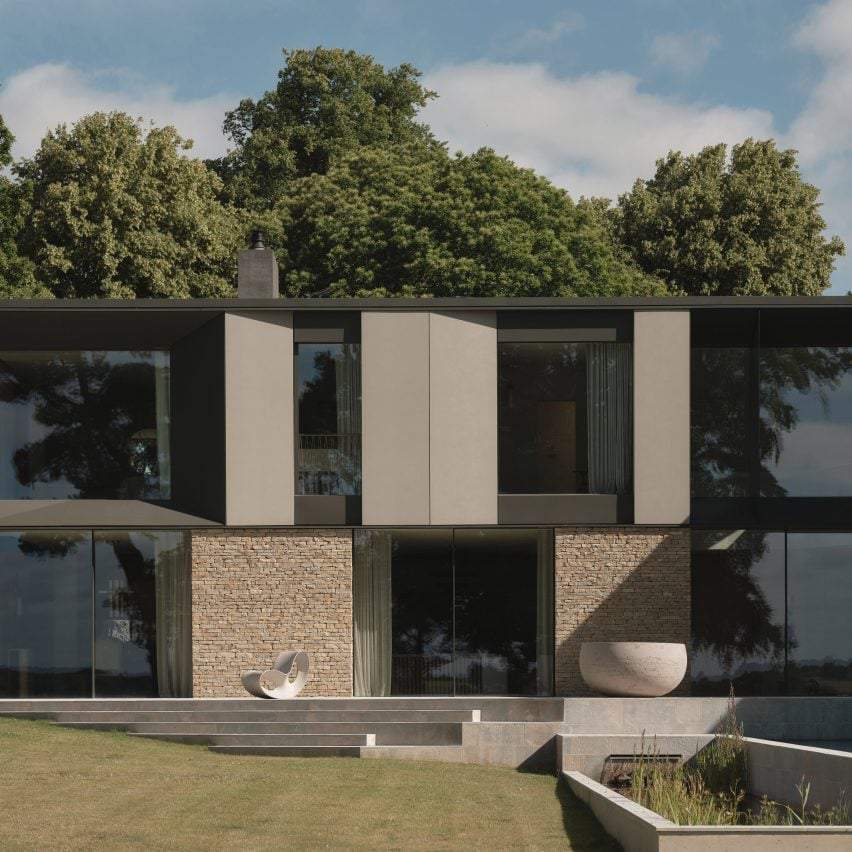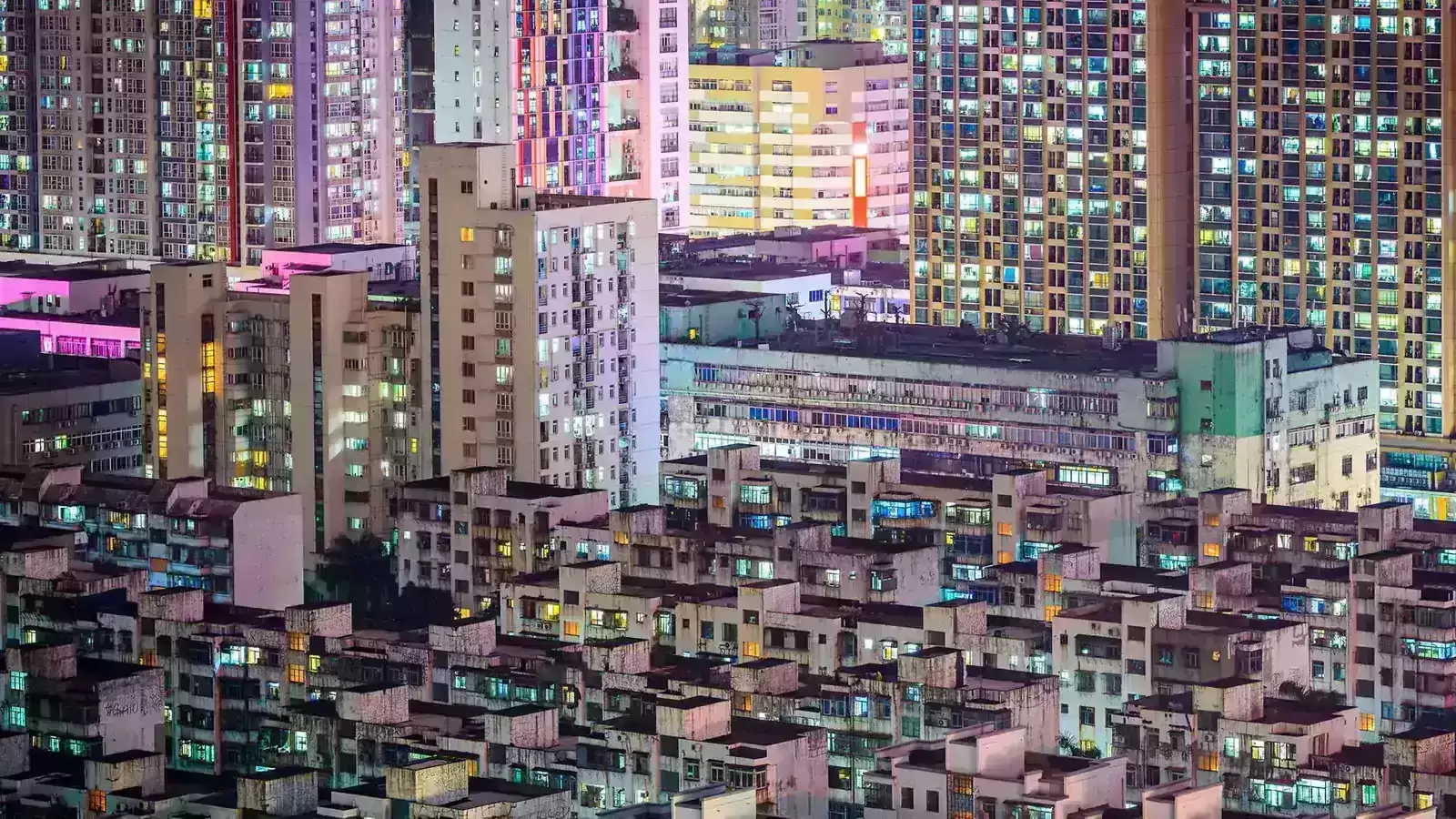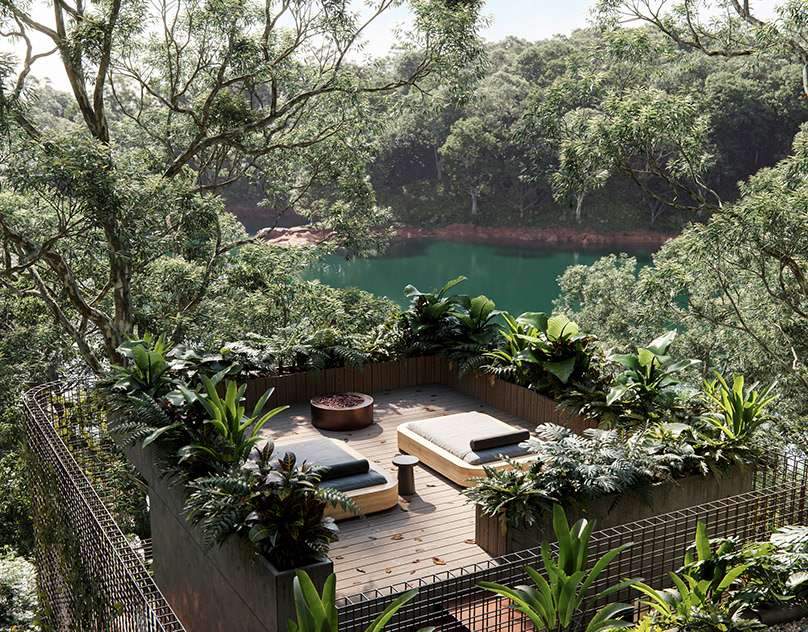Cs Somme Café: A Unique Architectural Design Combining Beauty and Functionality
In Fukuoka, Japan, a new café showcases how modern architecture can blend practicality with visual appeal. This article explores the design of a café wrapped in a transparent metallic mesh, giving it the illusion of floating above a green space in the city. We’ll explain how this was achieved using innovative materials that ensure stability during earthquakes and discuss its energy-saving features. We’ll also look at the interior design, which creates a delicate balance between light and textures to enhance the visitor experience.

Exterior Structure: A Transparent Mesh Creating the Illusion of Floating
The café’s exterior is covered with a fine metallic mesh that makes it appear as though it hovers above the surrounding greenery. This outer layer serves both an aesthetic and functional purpose. It reduces direct sunlight exposure, helping to lower the internal temperature and improve energy efficiency. The result is a building that looks light and airy while contributing to sustainability.
| Element | Description |
|---|---|
| Material Used | Fine metallic mesh |
| Aesthetic Benefit | Creates an illusion of floating and lightness |
| Practical Benefit | Reduces heat from sunlight, improving cooling efficiency |
Structural System: Invisible Strength
The building’s lightweight appearance hides a robust structural system. It uses a steel arch frame combined with an internal grid framework to ensure stability, even during earthquakes. This approach is inspired by traditional flying buttresses but updated for modern needs. The system meets Japan’s strict earthquake-resistant standards while maintaining a visually appealing design.
“Japan faces frequent seismic activity, so all buildings must be designed to withstand such events.”
(Source: Japanese Ministry of Land, Infrastructure, Transport, and Tourism)
| Element | Description |
|---|---|
| Structural System | Steel arch frame with internal grid framework |
| Purpose | Ensures stability during earthquakes |
| Inspiration | Modern reinterpretation of the flying buttress |
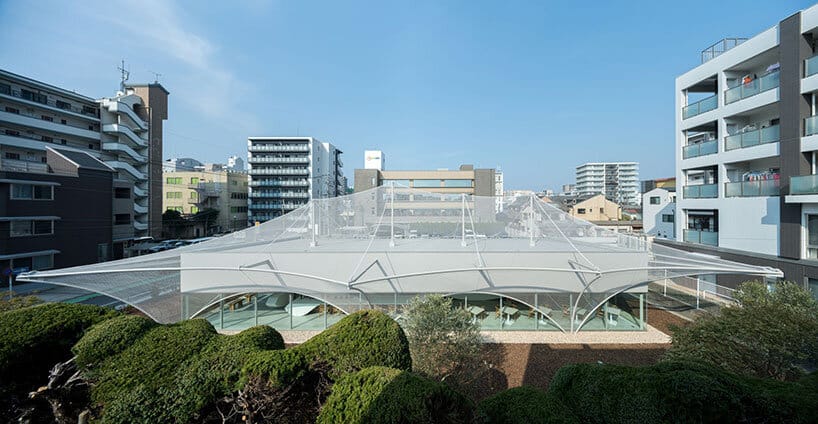
Interior Design: A Light and Comfortable Atmosphere
Inside the café, the design focuses on creating a sensory experience through contrasts. The central counter is made of polished plaster, offering a smooth and reflective surface. Soft lighting fixtures made from stretch fabric complement this element. Together, they create a sense of weightlessness, making visitors feel as though the interior elements are floating.
| Interior Element | Description |
|---|---|
| Work Surface | Polished plaster, smooth and reflective |
| Lighting | Stretch fabric providing soft illumination |
| Overall Ambiance | Visitors feel as if interior elements are floating |
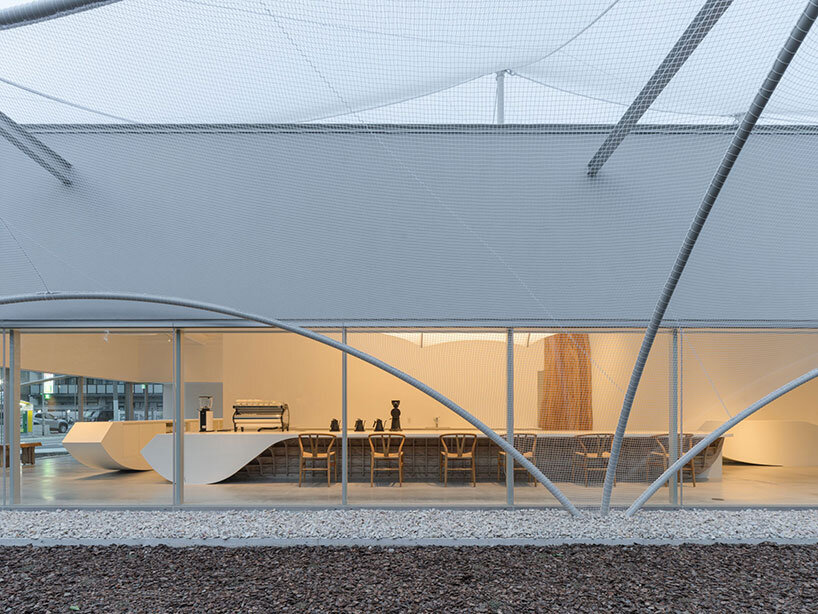
Environmental and Economic Benefits
The café’s design goes beyond aesthetics by incorporating energy-saving techniques. The metallic mesh filters sunlight naturally, reducing the need for artificial cooling systems. This not only lowers energy consumption but also cuts operational costs, making the building more sustainable.
Frequently Asked Questions (FAQ)
Can this type of design be replicated elsewhere?
Yes, this design can be adapted for locations requiring visual flexibility and structural stability, especially in regions with climates similar to Japan’s.
How does the exterior structure affect visitors’ experience?
The exterior creates a unique visual effect, making visitors feel as though they are in a floating space, enhancing their overall experience.
Is this café environmentally friendly?
Yes, the design includes energy-saving features like natural sunlight filtration, which reduces reliance on artificial cooling.
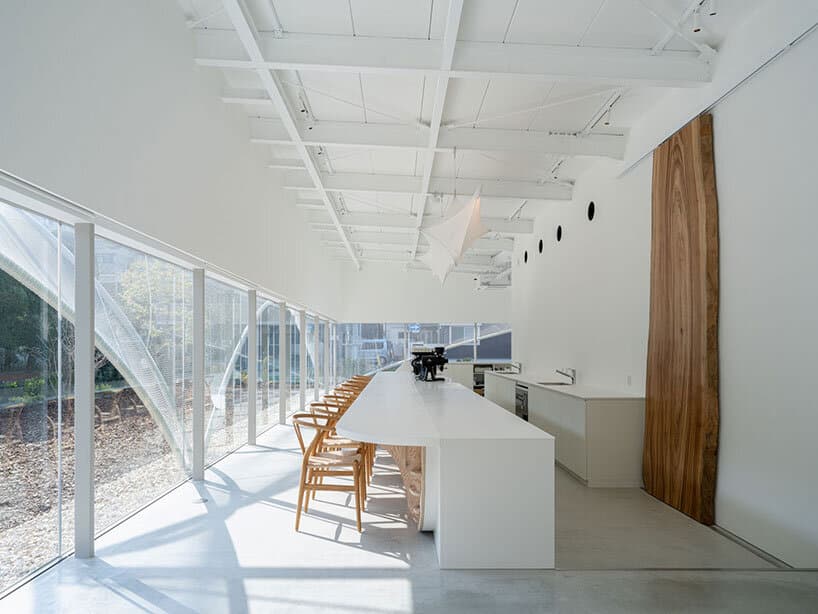
Summary Table
| Element | Description |
|---|---|
| Location | Fukuoka, Japan |
| Exterior Structure | Fine metallic mesh creating a floating illusion |
| Structural System | Steel arch frame with internal grid for stability |
| Interior Design | Polished counter and soft fabric lighting |
| Environmental Benefits | Reduces energy use through natural sunlight filtration |
This project demonstrates how architectural innovation can combine beauty and functionality. By focusing on sustainability and visitor comfort, it sets an example for future designs in urban spaces.


